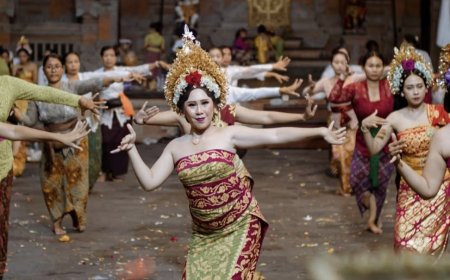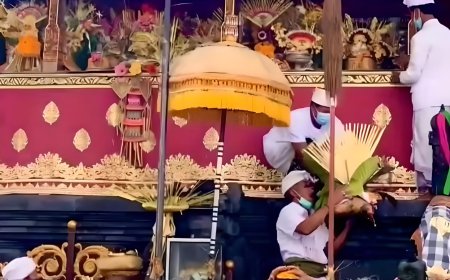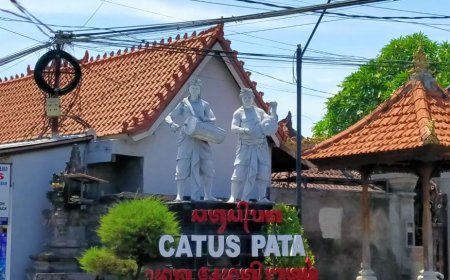From Rice Fields to the Stage: Megandu, a Revived Balinese Traditional Game
Amid the rapid development of technology and the strong currents of modern children’s games, Bali continues to preserve local wisdom through traditions rich with cultural values. One of them is Megandu, a traditional game rooted in agrarian life, born from the rice fields of Banjar Ole, Marga Dauh Puri, Tabanan Regency, Bali.
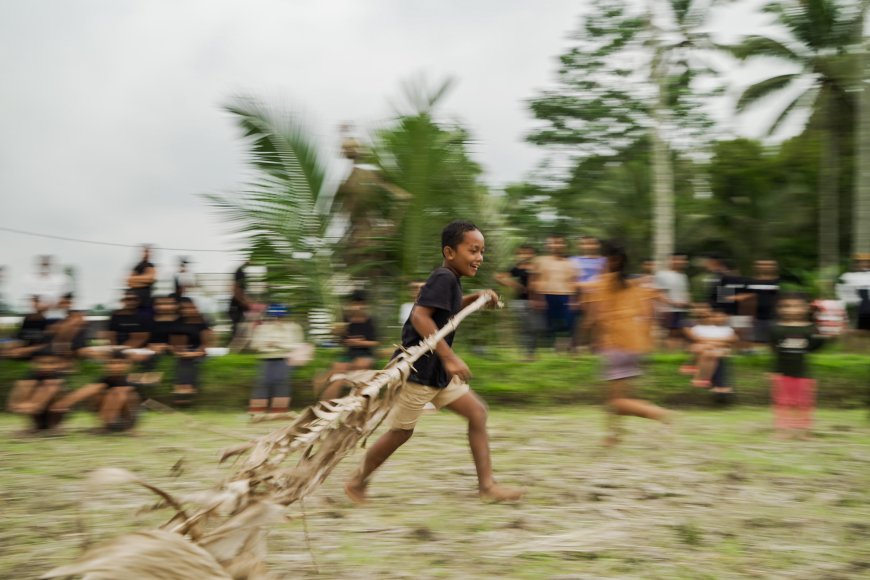
This game originated from the creativity of village children accompanying their parents during the rice harvest. After helping in the fields, they spent their free time creating games using simple materials found nearby, such as straw, coconut fronds, and paddy soil. Out of this spontaneous process came Megandu—a game that was not only a form of entertainment but also carried deep social, cultural, and spiritual meaning.
Megandu emerged as an expression of gratitude to God for a bountiful harvest. More than just a physical activity, it reflects the closeness of Bali’s agrarian communities to nature. The rice field was not only a source of food but also a space for social interaction. Using a straw ball shaped like an egg as the object of play, Megandu symbolizes life, fertility, and agricultural continuity. Children learned to value both hard work and the blessings of harvest.
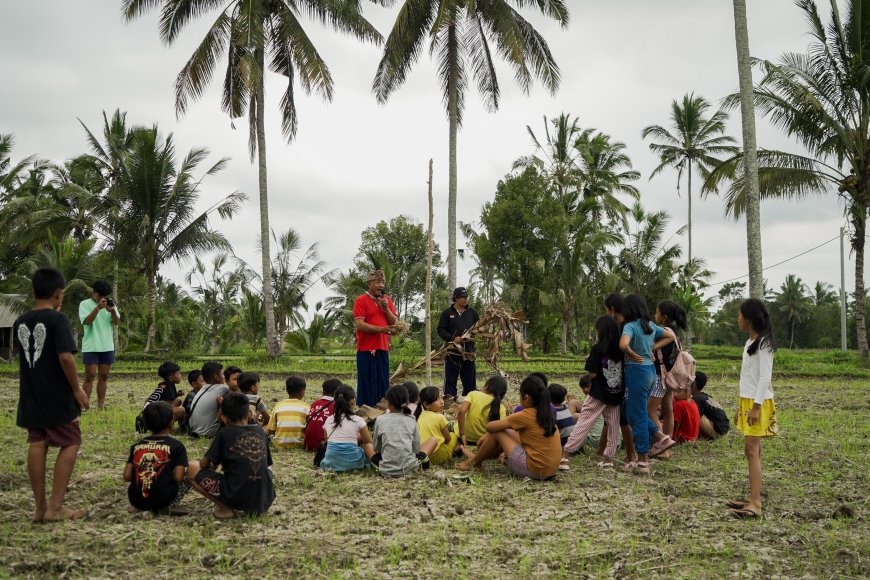
Preparing for the Megandu Game (Photo Source: Personal Collection)
Megandu is played in freshly harvested rice fields, with a wooden stick planted at the center of the arena as the focal point. The ball, made from dried straw packed with soil, represents an egg that must be protected. Players are divided into two teams of 10–20 people. One player acts as the “bird” guarding the egg, while the others play as thieves trying to steal it and bring it back to their base. The bird defends the egg by throwing the ball or tagging the thieves with dried leaves. Players hit or tagged are eliminated, and the game ends when all thieves are defeated or the egg is successfully stolen by the opposing team.
More than a recreational activity, Megandu contains strong elements of character education. It fosters values such as brotherhood, solidarity, cooperation, responsibility, strategy, and sportsmanship. These values not only strengthen village social bonds but also help preserve Bali’s agrarian heritage.
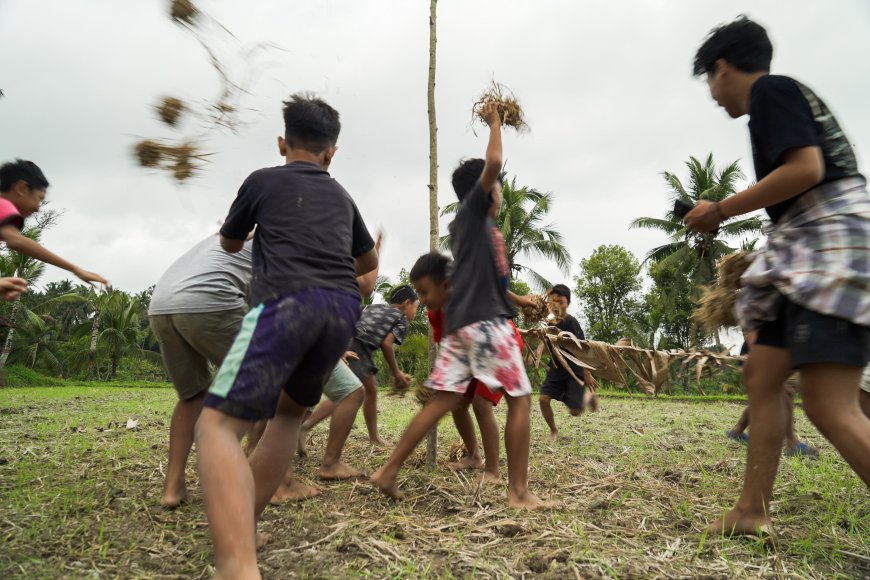
Thieves Attempt to Steal the Egg in Megandu (Photo Source: Personal Collection)
With growing awareness of the importance of cultural preservation, Megandu has now been proposed as part of Indonesia’s Intangible Cultural Heritage (ICH). It has also received a Communal Intellectual Property Certificate (KIK) from the Ministry of Law and Human Rights.
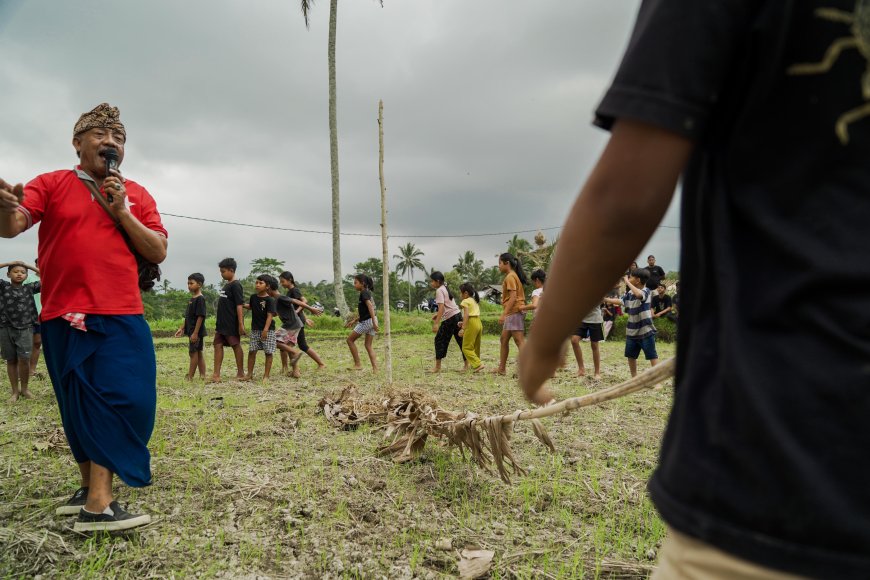
Megandu Traditional Game (Photo Source: Personal Collection)
Today, Megandu is not only played in rice fields but is also showcased at cultural festivals and art events. From its humble beginnings during harvest time, Megandu has risen to the cultural stage as both an identity and a source of pride for the people of Tabanan.
This transformation proves that traditional games never truly die. As long as there are generations willing to learn, play, and make them part of life, Megandu will continue to thrive—standing as a testament to how Bali’s local wisdom endures amidst globalization.










